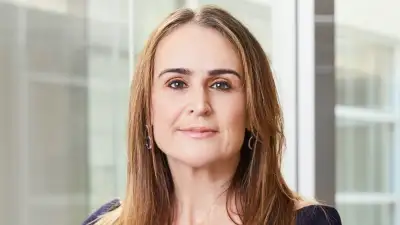(May-2002) A matter of Local know-how
Looking back, it seems Alex Bajada only fell into superannuation by accident. But during his tenure as chair of the WA Local Government Superannuation Plan (LGSP), he has played a pivotal role in transforming it into one of the largest and more enterprising funds on the west coast.
He has a background in finance, having worked mainly as a stockbroker, but his role in super grew out of his duties as a local councillor for the 95,000 residents of the City of Melville in 1987.
In 1991 and 1992, during his term as president of the Local Government Association, he noticed that an increasing number of complaints received were related to superannuation and the more visits he made to local authorities, the more complaints he received.
“Super was one of the areas I got the most complaints from, especially from different staff members I met at many local authorities who said: ‘For God sake, do something about our super’,” he says.
One issue of concern was the limited returns members were receiving because the fund had invested in capital guaranteed products after the 1987 stock market crash and these were being worked through in the early 1990s.
“So when a position became available, I put my hand up to take on the role and was elected by the local government association to be their representative on the fund,” he says.
He was initially appointed to LGSP’s board as an employer representative in 1994, but by 1996, he was deputy chair and he hasn’t looked back since. He is now doing his third stint as the fund’s chair, this time as an independent chair, having being lured back to the post in May 2001 following his decision to cease his 14 year relationship in local government as a councillor.
Bajada says during his time with LGSP, the fund has grown its assets from $150 million in 1994 to $480 million today, to become one of the largest funds in Western Australia. These days, the fund covers employees at 144 councils, 28 regional and associated employers, and 114 non-local government-sponsoring employers.
It also increased its investment options from four to eight from January 1, 2000, adding Australian property, Australian shares, international shares and select shares to its existing line up, which includes cash, capital stable, balance and growth (which are pre-mixed) options.
Also, a decision was made to return to an in-house administration system from July last year, ceasing LGSP’s relationship with Mercer. “They had priced themselves way beyond what the fund was willing to pay,” Bajada says.
LGSP also offers competitive insurance options. Its low administration fees of $52 a year have helped get it voted as the highest performing public sector fund in Australia from 1998-2000, which Bajada describes as the fund’s “premium years”.
An area where LGSP stands out is in its $15 million private equity portfolio. This includes a number of unique investments in a range of industries expected to provide exciting returns.
The most recent was a $2 million investment in Australian Renewable Fuels which operates a bio-diesel project, using Austrian technology, to process waste fats into a biodegradable and non-toxic bio-diesel fuel which can significantly reduce exhaust emissions.
Bajada says while this may be perceived to be a socially responsible investment, the prime objective “is to make profits for our members”. The fund has the option to invest in the three future plants planned over the next few years.
LGSP also made a $3 million investment in Alchemist Healthcare in February this year, which runs a medication management and supply service, and will become the first Australian super fund to offer its members and their families a medication management and supply service.
Bajada says while the service will be available to members in the second half of the year, it doesn’t cost his fund anything. Instead, it will improve its health profile and assist the fund when it negotiates its group life insurance contracts.
Late last year, LGSP also invested $1.5 million in DHT Technologies. This company provides specialised technology for Q-drilling machinery that allows blunt drilling bits to be replaced while leaving the casing underground.
Bajada believes the fund is not disadvantaged by being located on the west coast. It overcomes the tyranny of distance by meeting consultants and fund managers regularly and by receiving support from other local government funds.
“We get together quite regularly with other government funds across Australia, and the NSW Local Government fund and also the Victorian fund, Local Authority Superannuation Fund (LAS), have been good in sharing information,” he says.
Going forward, LGSP is considering adding new investment options and taking a direct equity stake in the management of a fund manager based in Sydney.
Bajada looks forward to choice of fund being introduced and says it has been discussed for too long. And when it comes, he believes LGSP’s current array of investment options and other services, like allocated pensions, insurance and home loans, will keep it competitive.
In addition to his role at LGSP, Bajada is kept busy tending to his young family and operating his own business RM Capital. Formed in October 2000, it specialises in raising private capital for companies in Western Australia.
Recommended for you
The corporate regulator has launched civil proceedings against Equity Trustees over its inclusion of the Shield Master Fund on super platforms it hosted, but other trustees could also be in the firing line.
The shadow minister for financial services says reworking the superannuation performance test to allow investment in house and clean energy risks turning super into a ‘slush fund’ for government.
Australia’s superannuation sector has expanded strongly over the June quarter, with assets, contributions, and benefit payments all recording notable increases.
The Super Members Council (SMC) has called on the government to urgently legislate payday super, warning that delays will further undermine the retirement savings of Australian women.











